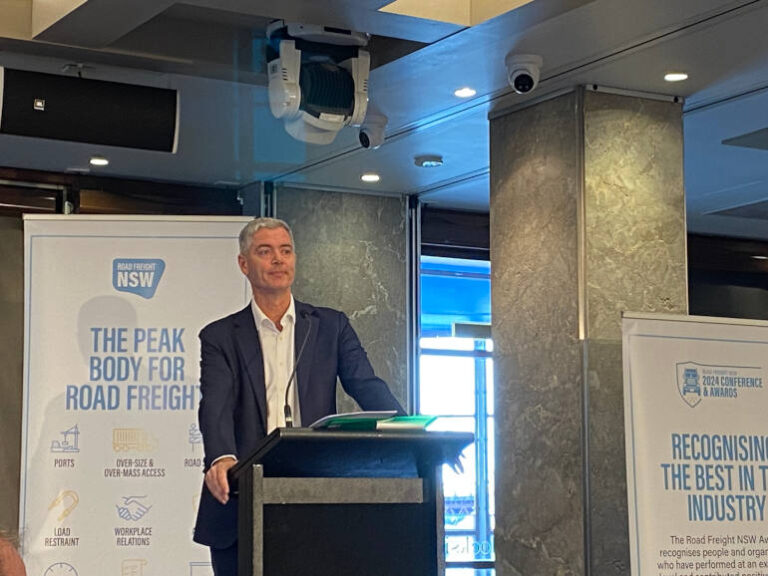At the Road Freight NSW Conference in July, NSW Minister for Roads, John Graham, addressed key issues facing the road freight industry, particularly in Sydney, and outlined the government’s plans to support operators and reform problematic areas. He acknowledged the crucial role the road freight sector plays in the economy, facilitating the transport of goods across vast distances and keeping essential services running, especially during the COVID-19 lockdowns. However, he emphasised that Sydney poses unique challenges for the industry, such as high tolls, traffic congestion, and a lack of adequate rest areas for truck drivers.
Graham specifically highlighted Sydney’s reputation as one of the least truck-friendly cities in Australia. One of the most pressing issues raised by the industry is the lack of dedicated rest stops between key freight routes, such as Pheasants Nest and Wyong. This shortage forces drivers into dangerous situations, with fatigue being a major factor in road fatalities. He cited alarming statistics: 30% of fatal road incidents involve driver fatigue, and many truck drivers are forced to park in suburban areas due to the lack of rest areas. This presents both safety and operational challenges.
In response, the NSW government has initiated consultations with the freight industry, receiving feedback from over 800 industry members. Graham stated that the government is working to identify suitable sites for rest areas, having narrowed down 100 potential locations to 43, with further due diligence being conducted on 16 of these. The new rest areas will be equipped with essential facilities, including safe parking bays, flushing toilets, clean drinking water, hot showers, and food options, to ensure drivers, including female truck drivers, feel safe and supported.
High tolls were another critical topic. Sydney’s toll network is often seen as overly complex and expensive, particularly for the freight industry. Graham highlighted how some truck operators can pay as much as $140 for a single return trip, significantly adding to operating costs and pushing up consumer prices. These costs also force many trucks off major toll roads and onto local roads, causing further congestion and delays.
To address these challenges, the NSW government is considering a range of reforms. One key proposal is introducing a network-wide pricing system with a declining distance charge, which would benefit long-distance haulers. Additionally, a new mid-class heavy vehicle category is being explored to encourage smaller trucks to use toll roads. Graham also mentioned the possibility of introducing off-peak toll discounts for heavy vehicles, similar to a system already in place in Melbourne, where trucks receive a 33% discount between 8pm and 6am.
Graham also touched on the issue of truck-related incidents, particularly around Sydney’s tunnels. He commended the industry for its collaboration, which has led to a 32% reduction in incidents and a 67% decrease in tunnel closure times. These improvements have made a significant difference in reducing disruptions on key freight routes.
In closing, Graham lauded the opening of the Sydney Gateway which opened earlier this month, a toll-free connection between the airport and the motorway network. This new route is expected to reduce travel times by 17 minutes and alleviate pressure on local roads by rerouting 10,000 trucks daily. He reiterated the government’s commitment to working with the freight industry to improve conditions, lower costs, and ensure safer roads for all.






